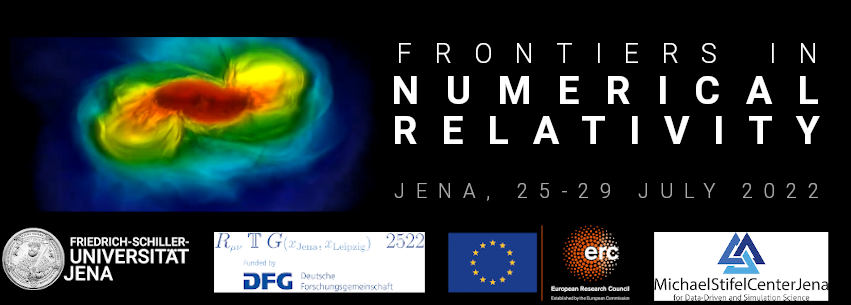Speaker
Description
Binary neutron star mergers provide the unique opportunity to study matter at densities and temperatures unreachable in laboratories on earth. Its properties are encoded in the equation of state whose influence on the graviational wave signal of merging neutron stars can be used to constrain the physics of the strong interaction. But it is not only the equation of state which carries information about the underlying microphysics of neutron stars. Transport effects such as bulk viscosity are hypothesized to influence the dynamics binary neutron star mergers as well as opening another potential window to study and constrain matter in such extrem conditions. In this talk I will present the first steps towards the inclusion of transport effects in fully general-relativistic numerical simulations. Here, I will introduce a conservative 3+1 formulation of the equations of dissipative general-relativistic hydrodynamics which enables the inclusion of dissipative effects in numerical relativity codes. As a first application of this formulation I will show standard tests in special relativity such as the shock-tube problem. To further move on to general relativity, the problem of stationary, spherically symmetric black hole accretion including bulk viscosity is solved. Finally, we present first results of oscillating neutron stars with bulk viscosity in a three-dimensional setup with a dynamically evolved spacetime.

